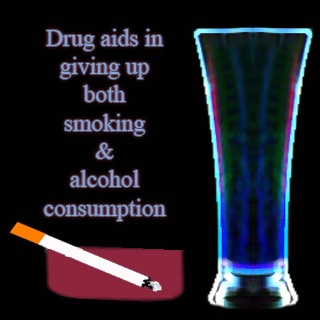
Alcohol and tobacco induced diseases are said to be the leading cause of death in people. People who smoke are very likely to even consume alcohol, in addition to smoking cigarettes. This increases their likelihood of potentially suffering from alcohol related disorders by four times.
This particular drug could be very useful for helping people suffering from both disorders to abstain from both smoking and alcohol consumption. The varenicline drug or Chantix, is a drug that is prescribed to smokers to help them in quitting smoking. The study investigators demonstrated that after taking this drug the subjects who both smoke and drink heavily, appeared to consume lesser alcohol as compared to the subjects taking a placebo.
“We anticipate that the results of this preliminary study will trigger clinical trials of varenicline as a primary treatment for alcohol use disorders, and as a potential dual treatment for alcohol and tobacco use disorders.†says Lead author of the study, Sherry McKee, associate professor of psychiatry, Yale School of Medicine.
They state that the subjects who took this drug were more prone to experience lesser cravings for consuming alcohol and were less intoxicated after consuming it. They were even relatively more likely of sustaining abstinence after being offered a drink in comparison to the subjects in the placebo group. It was noticed that about 80 percent of the subjects who took this miracle drug did not accept the offered drink, as compared to only 30 percent of the declined offers from the other group of subjects who took a placebo.
This particular drug did not appear to have any adverse effects when combined with low doses of alcohol. It didn’t seem to alter the heart rate or blood pressure, and it didn’t even result in the subjects feeling dizzy or nauseous.
Their findings are published online in the journal Biological Psychiatry.
